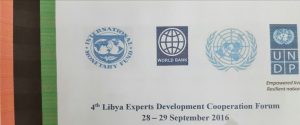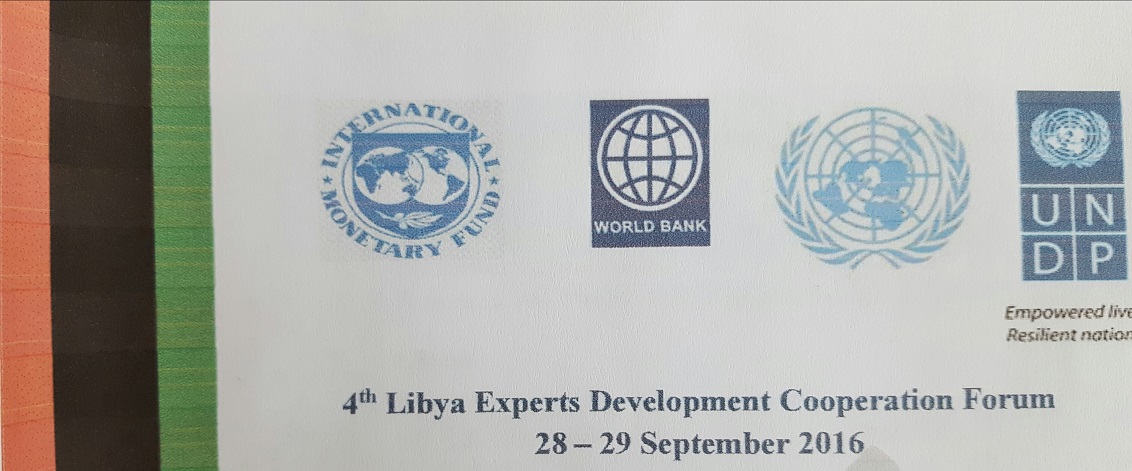By Sami Zaptia.

London, 27 September 2016:
The 4th Libya Experts Development Cooperation Forum will be held in Tunis 28-29 September organized and sponsored by UNSMIL, UNDP, IMF and the World Bank.
The forum is made up of about 60 Libyan former Ministers, including members of the NTC, the Interim Governments and GNA, as well as academics, experts and activists.
The forum aims to promote synergy between the Libyan intellectual community and government decision-makers. It is an advisory body which is able to translate the findings of fundamental research into policy options and to enable politicians to see the effects of their decisions.
It aims to provide support at a time of post-conflict peacebuilding and state-building, when the fragile Libyan government finds it difficult to obtain all relevant information and knowledge on priority issues that they need to justify policy decisions in terms of potential consequences.
The forum hopes to help Libya as it faces highly complex development challenges. These include priorities such as ensuring inclusive politics, addressing security and rule of law reforms, putting the economy in order so as to achieve sustainable growth, meeting the demand for better basic service delivery, stabilizing government functions, creating jobs and enhancing labour productivity, and eliminating economic, social and cultural aspects of inequality.
To help the Libyan authorities achieve these objectives, the forum has drafted a short-term roadmap for the Libyan government for implementation during the first year following the signing of the UN-brokered Libyan Political Agreement in Morocco’s Skhirat in December 2015.
The roadmap was based on field work conducted by experts within the forum and aims to provide visionary policy options for core areas of government, hoping to kick start key drivers of change.
The fourth meeting of the Experts Forum in Tunis aims to discuss actions related to different line ministries in this roadmap. These actions are categorized into tangible actions with concrete outcomes and intangible actions that constitute outcomes geared towards strengthening institutions and streamlining policies and programmes.
These tangible and intangible actions fall into seven broad categories:
- Meeting Emergency and Humanitarian Needs and Improving Access to Basic Services
- Restoring Macro Economic Stability and Building a Platform for Sustained Growth and Inclusive Development
- Ensuring Early Local Economic Recovery, Protecting Livelihoods, Empowering Youth, Brokering Social Reconciliation and Enforcing Procedural Justice in Local Administration
- Stabilizing Government Functions, Capacity and Transparency to Deliver the 180 Days Roadmap
- Providing Security and Rule of Law and Citizens’ Rights Protection
- Consolidate the Political Process and Agree on a Roadmap to a New Constitution
- Enabling the GNA to Communicate with Citizens in the Public Sphere to Assure Societal Accountability and Solicit National Visioning for the State-Society Social Contract and the New Deal







